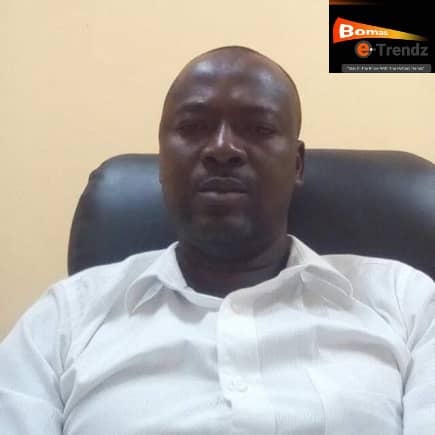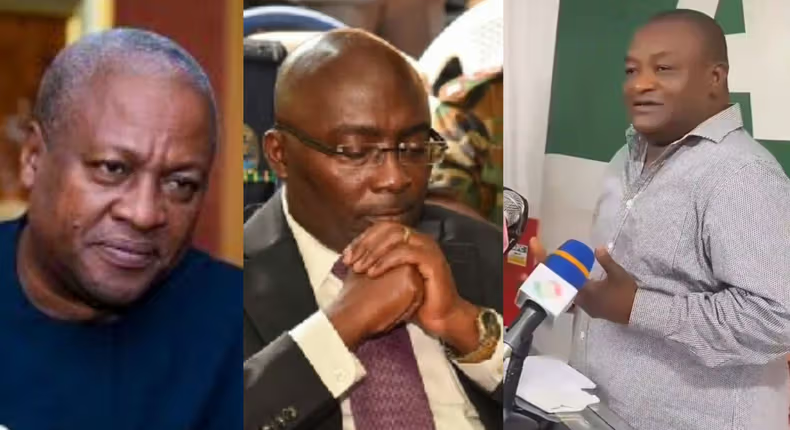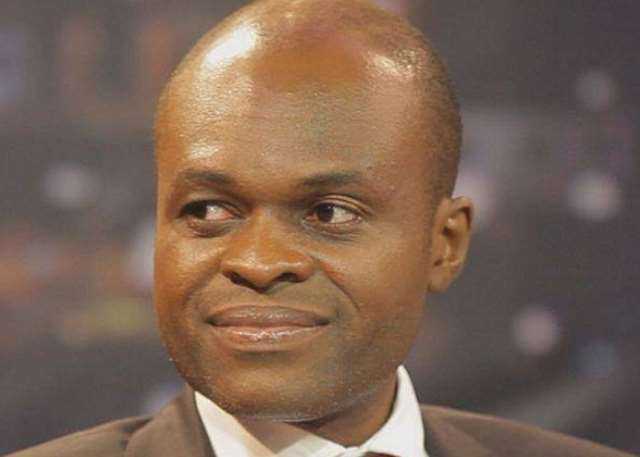Kenya protest: Type of democracy being practiced in some African countries not helpful – Agyeman-Duah
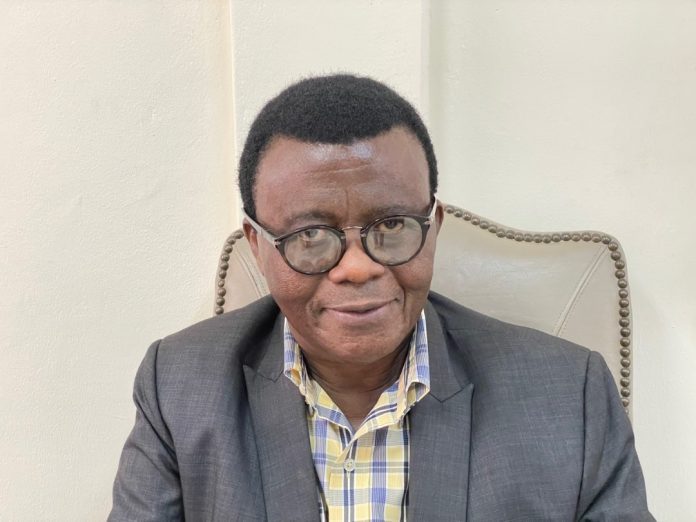
The protest in Kenya speaks of the need to have a second look at the type of democracy being practiced in some African countries, a Governance Expert Professor Baffuor Agyeman-Duah has said.
Prof Agyeman-Duah explained that the youth notice the lifestyles of a few groups of people or leaders and compare them to the condition of the vast majority of people. In doing that they see a disconnect between the lifestyles of the leaders and the majority of the people who are deprived.
Therefore taxing deprived people was always going to create problems, he added.
“It is a very strong lesson for Africa generally, the first lesson is that the elite or the older generation, we have mortgaged the future of the young people through reckless leadership, borrowing,” he said on the Key Points on TV3 Saturday, June 29.
“The situation in Kenya is not uniquely Kenya, it cuts across many African countries including our own and therefore our leadership should sit up, the issue here is leadership that is not responsive to the needs of the people, seeking self-aggrandizement” he added.
He added “The way certain aspects of Africa practicing democracy is not working so there needs to be a second look at the practice. The youth see a distinct lifestyle of a small group of people, leaders whereas the vast majority of the people are deprived.”
The violent protest in Kenya forced President William Ruto not to sign the Financial Bill 2024, a bill that occasioned the upheaval.
President Ruto had announced on television that he would not sign the Financial Bill 2024 after days of protests that have claimed over 22 lives so far.
In the address, Mr. Ruto explained why the government had to introduce the taxes at this time, saying the country needed it for priority areas.
“The Finance Bill 2024 underwent public participation which resulted to concessions by which we agreed to drop proposals on VAT on bread, VAT on locally manufactured diapers and sanitary pads…among others. The additional tax measures we had proposed were to raise 346 billion shillings (KES)…after public participation, that came down to 200 billion. I made the proposal looking at our situation and priorities,” he said.
William Ruto emphasized the priority areas as being 10 billion shillings into fertilizer subsidy (agriculture), education, health insurance which would have received 6 billion shillings, among others.
But the Kenyan President said he has been made to change his mind on the matter.
“It has become evident that members of the public still insist on the need for us to make more concessions, and because I run a government, but I also lead people, and the people have spoken…. having reflected, on the Financial Bill 2024 and listening keenly to the people of Kenya, I concede and therefore will not sign the Finance Bill 2024 and it shall be withdrawn…and that becomes our collective position.”
He subsequently wrote to Parliament about his decision not to sign the Bill.
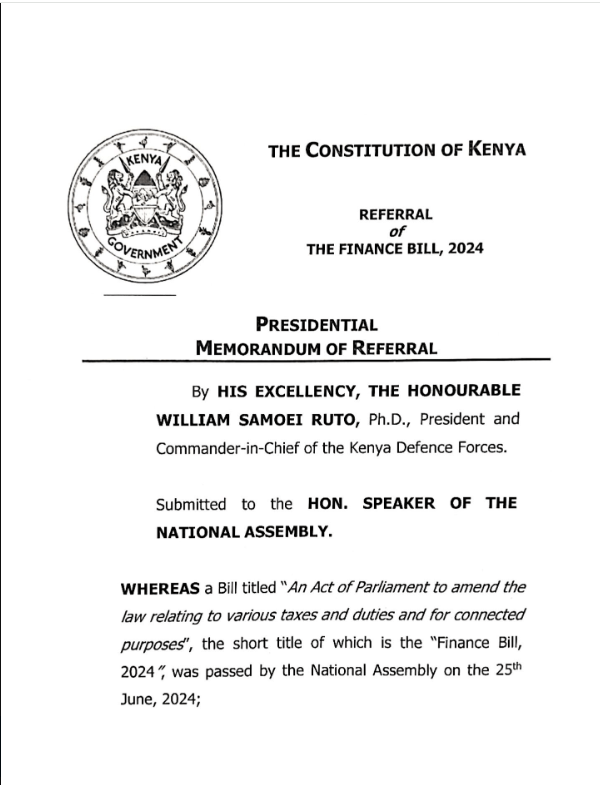
The National Assembly of Kenya’s Parliament approved the deployment of Kenya Defence Forces (KDF) in support of the police in the ongoing countrywide protests against the Finance Bill, 2024.
The approval given during a special sitting elicited controversy on its legal basis and the manner in which it was conducted.
Rarieda MP Otiende Amollo took to social media to state that the sitting occurred without media coverage as is the norm in past proceedings and took about 30 minutes.
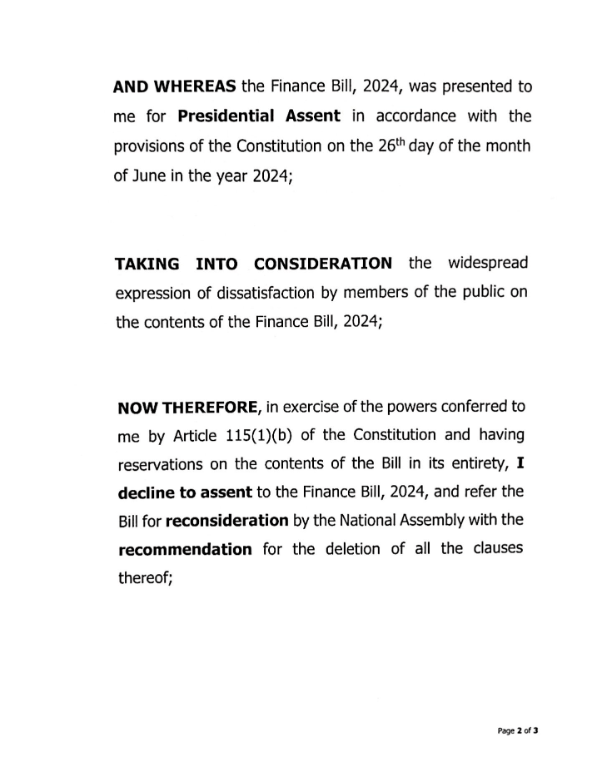
He questioned whether there was even the constitutionally mandated quorum which requires 50 members in the National Assembly before it was approved.
He posted on X “National Assembly Has Just Made Kenya A Military State; Authorizing Deployment Of KDF Without Indicating Where, Why Or For What Period, & Did So Retrospectively Contrary to Article 241(3)(c). God Bless Us.”
